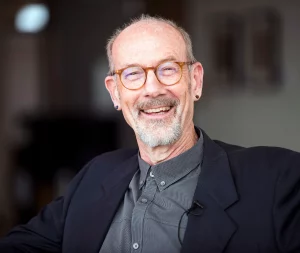Kirk Schlueter Wins the 2025 Richard Mathews Prize for Poetry

We are thrilled to announce that this year’s winning manuscript of the Richard Mathews Prize for Poetry is The Resurrection of the Body by Kirk Schlueter. Schlueter is a writer and teacher based out of St. Louis, where he lives with his wife and son. His poetry has been awarded the Frontier Prize for New Poets judged by Victoria Chang, as well as an Illinois Arts Council Award, and has appeared in journals such as Bat City Review, RHINO, Diode, Third Coast, Nimrod, River Styx, Passages North, Ninth Letter, Natural Bridge, The Pinch, Grist, Radar Poetry, and Tinderbox Poetry Journal among others. Fellowships include the New York State Summer Writers Institute at Skidmore College, Kenyon College Writers Workshop for Teachers, and University Fellowship at Southern Illinois University-Carbondale. He received his MFA from Southern Illinois University-Carbondale, and can be found on his website.
Of Schlueter’s manuscript, one of our judges and poetry editor, Paul Corrigan, says:
In The Resurrection of the Body, through poems both narrative and lyrical, Kirk Schlueter tells necessary stories of male anorexia. These are stories that have largely been erased from broader social narratives by patriarchal assumptions about eating disorders. In an early poem in the book, titled “Ten Million American Men Will Suffer from an Eating Disorder During Their Lives,” the poet underscores anorexia’s gendered inflection by recalling a health teacher in school talking about body image and saying, “Girls, this is important, pay attention.” He also recalls some of the very boys mocking female classmates for disordered eating only to eventually find themselves suffering from the same disorder and uttering the same lie: “I’m fine.” Later in “The Anorexic’s Aubade,” Schlueter dramatizes the difficulties that loathing oneself can create for loving and being loved by another. A couple wakes and eats breakfast together—barely. The beloved eats just a “knuckle of food,” while the speaker “shoved my own eggs around // so it seemed I’d eaten more.” Later, the two are “rent apart / like meat cleaving off a bone.” The juxtaposition of food and body imagery (knuckle and bone, eggs and meat) links the breakfast and the breakup in a shared illness. But Schlueter’s stories are not only about illness. The final poem in the book, “The Body as Metaphor,” brings us to a place that is “healthy?” That question mark refuses any simplistic notion that all is well. But by now, the poet can declare: “I wanted to die, / & now I don’t.” That’s no small progress for any man or anyone.
Please join us in congratulating Kirk!
The Richard Mathews Prize for Poetry (formerly the Tampa Review Prize for Poetry) is given annually for a previously unpublished booklength manuscript. Judging is by the editors of Tampa Review. Submissions are now being accepted for 2026.





